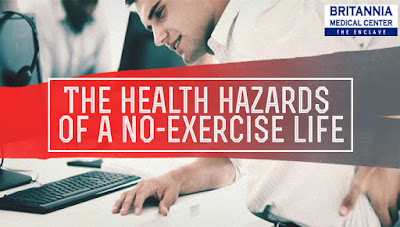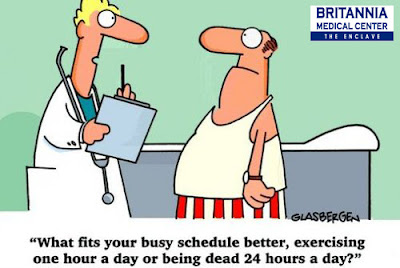SITTING IN THE OFFICE ALL DAY? THE HEALTH HAZARDS OF A NO-EXERCISE LIFE
Back in the old days when men were tasked to work that involved a lot of physical activity: hunting, fishing, and carpentry, to name a few. That’s why if you look at men from older decades, they looked buff, strong, and ultimately, healthy! They didn’t need medicines for diabetes or other life-threatening diseases. These people were in the pink of health.
But in recent years, most workers are now assigned to desk jobs because of the rise of industrialization and computers. Now instead of exercising our entire bodies, our backs remain steady on our chairs for hours as our fingers furiously type away on our keyboards. It’s become a norm, but in reality, this causes us more harm than good. That’s not what our body’s made for. Our bodies were made for physical activity. Today, we’ll look at the health hazards of a no-exercise life due to sitting on our chairs the whole day.
Electrical leg activity shuts down
Okay, you won’t go limp because of this, but this is bad because your calorie-burning capabilities drop to only 1 per minute. This is because the major muscles aren’t moving. Ergo, the body doesn’t sense the need to burn anything because there is little to no muscle activity.
Not only that, it leads to a much greater physical risk: Remaining in a seated position for an entire day leads to a 40% reduction of insulin production, which greatly decreases your body’s capability to process glucose, leading to type 2 diabetes. Yikes!
You get fat
If your metabolism lowers, then you can expect to get chunkier and chunkier until you’re obese. Yep, that’s right. You can get obese… just by sitting down.
Your heart is at risk
Studies have shown that men who live a primarily sedentary lifestyle were 64% more likely to suffer from heart disease. If you want to live longer and see your great grandkids, get off your butt and do some mild walking.
Your whole body goes into shutdown
There’s a reason why your metabolic rate goes down and muscles atrophy when they aren’t used as much as they should be. According to research, when physical activity is very, very limited, your entire body, organs and their functions, shut down. Simply put, our bodies were not created to be immobile for long periods of time.
You lose a couple of years in your lifespan
If you sit for more than 6 hours a day for 10-20 years, you can kiss 7 years from your lifespan goodbye. Also, you’ve just made yourself more prone prostate or breast cancer by about 30%. Are you motivated to get off your chair now? No? Okay. Then just keep on reading.
Now that you’ve read about the health hazards of sitting down too long, we hope you take this article seriously and incorporate some physical exercises into your daily schedule to combat these negative effects.
If there are questions and concerns call us at 0925-567-5329 • 0908-865-5662 • 0917-566-1932 • 458-0717 and schedule a consultation today.









